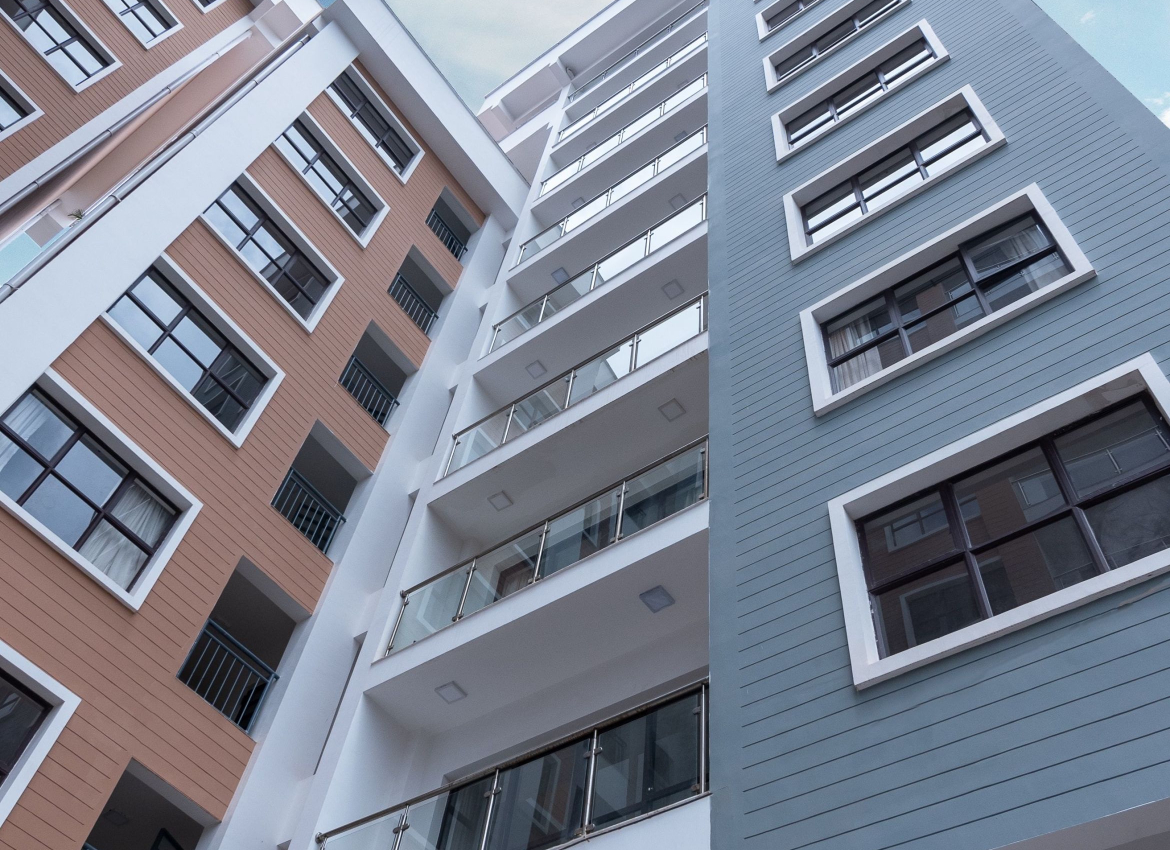- Home
- Buy
- Rent
- Commercial
- Services
- Diaspora 🌍
- Resources
- Blog
- Contact
Investing in Kenyan Real Estate: A Comprehensive Guide
Kenya’s real estate market is a burgeoning sector with substantial opportunities for investors. As the country progresses economically and infrastructurally, the property market remains a focal point for growth. This guide offers a deep dive into the dynamics of investing in Kenyan real estate, covering market trends, emerging opportunities, and practical strategies. Whether you’re a seasoned investor or new to the market, this resource will equip you with the knowledge needed to navigate Kenya’s real estate landscape successfully.
1. Understanding the Kenyan Real Estate Market
1.1 Overview of the Market
Kenya’s real estate market is characterized by its diversity and growth potential, fueled by urbanization, economic expansion, and significant infrastructure projects.
-
- Urbanization: Rapid urbanization is a key driver of real estate demand. Cities like Nairobi, Mombasa, and Kisumu are experiencing high population growth, leading to increased demand for both residential and commercial properties. Nairobi’s population alone is projected to exceed 6.5 million by 2030.
- Economic Growth: Kenya’s GDP growth, which averaged around 5% annually, underpins a robust real estate sector. The growth has led to increased disposable incomes, fueling demand for residential and commercial spaces.
- Infrastructure Development: The Kenyan government’s Big Four Agenda aims to drive economic growth through infrastructure projects, including roads, railways, and affordable housing. For example, the Nairobi Expressway, a major infrastructure project, is expected to enhance connectivity and property values in the city.
1.2 Key Drivers of Growth
Several factors are contributing to the growth of Kenya’s real estate sector:
-
- Population Growth: Kenya’s population growth is a significant driver of real estate demand. With projections indicating a rise to 65 million by 2030, the need for housing and commercial spaces will continue to increase. Kenya National Bureau of Statistics provides comprehensive demographic data.
- Foreign Investment: International investors are increasingly interested in Kenya, driven by the country’s stable economic environment and growth prospects. The presence of multinational corporations and international organizations enhances Kenya’s appeal. For instance, the World Bank has been actively involved in funding infrastructure projects in Kenya.
- Government Policies: Pro-business policies, including tax incentives for real estate development and streamlined regulatory processes, encourage investment. The Kenya Investment Authority provides information on investment incentives and regulations.
2. Types of Property Investments
2.1 Residential Properties
Investing in Kenyan real estate requires a thorough understanding of the market landscape. The Kenyan property market is characterized by a growing demand for residential, commercial, and industrial properties. Key cities like Nairobi, Mombasa, and Kisumu are prime locations for investing in Kenyan real estate due to their economic activity and infrastructure development. Kenya offers various residential property investment opportunities, catering to different segments of the market. The demand for housing is driven by urbanization, population growth, and increasing incomes.
-
- Nairobi: Nairobi is a prime location for residential investments, with several key areas offering different investment opportunities:
- Westlands: This vibrant area is known for its mix of commercial and residential properties. The demand for high-end apartments and luxury homes is growing due to its proximity to amenities and entertainment hubs. Visit Nairobi offers insights into the city’s real estate market.
- Kilimani: A popular neighborhood among expatriates and middle-class families, Kilimani boasts good transport links and a range of residential options. The Kilimani Project Foundation provides community and development updates.
- Karen: Known for its affluent residents, Karen offers larger homes and expansive properties, making it attractive to high-net-worth individuals. Karen Residents Association provides updates on local developments.
- Mombasa: Mombasa’s coastal appeal makes it a desirable location for residential investments:
- Nyali: Nyali is known for its upscale properties, including beachfront homes and luxury apartments. Mombasa County Government offers information on property developments in Nyali.
- Diani Beach: Diani Beach’s scenic beauty and tourist appeal make it a prime location for vacation rentals and resort properties. The Diani Beach Association provides updates on the local property market.
- Kisumu: As a growing city on the shores of Lake Victoria, Kisumu offers opportunities in residential and commercial real estate. The Kisumu County Government provides insights into local development projects.
- Nairobi: Nairobi is a prime location for residential investments, with several key areas offering different investment opportunities:
2.2 Commercial Properties
Kenya’s commercial real estate sector includes office spaces, retail outlets, and industrial properties. This sector benefits from Kenya’s growing economy and business environment.
-
-
- Office Spaces: Nairobi is the hub for office space investments, with areas like Upper Hill and the Central Business District (CBD) being prime locations. The demand for modern office spaces is rising, driven by the influx of multinational corporations. The Nairobi Business District provides information on office space developments.
- Retail Outlets: Retail properties are in demand due to increased consumer spending. Key locations include major shopping malls and retail parks. The Kenya Retail Sector Report offers insights into the retail property market.
- Industrial Properties: Kenya’s strategic location as a logistics hub for East Africa drives demand for industrial properties. Areas around Nairobi and Mombasa are key locations for warehouses and manufacturing facilities. The Kenya Industrial Property Report provides data on industrial real estate trends.
-
2.3 Industrial Properties
The industrial real estate sector in Kenya benefits from the country’s strategic location and growing infrastructure:
-
-
- Logistics Hubs: Kenya’s role as a logistics hub for East Africa creates demand for logistics and warehousing facilities. Nairobi’s Industrial Area and Mombasa’s port city are key locations. The Kenya Ports Authority provides updates on port and logistics developments.
- Economic Zones: Special Economic Zones (SEZs) and industrial parks offer incentives for investors, such as tax breaks and streamlined regulations. The Nairobi SEZ and the Mombasa Freeport are notable examples. Kenya Industrial Estates provides information on SEZs and industrial parks.
-
3. Market Trends and Opportunities
When investing in Kenyan real estate, staying updated with market trends is crucial. The real estate sector in Kenya is experiencing significant growth, driven by urbanization, infrastructural projects, and increasing foreign investments. Opportunities for investing in Kenyan real estate are particularly prominent in sectors such as residential high-rises, commercial office spaces, and industrial warehouses.
3.1 Emerging Trends
Several trends are shaping the Kenyan real estate market:
-
- Sustainable Development: There is a growing focus on sustainable building practices. Green buildings and eco-friendly developments are gaining popularity as investors and developers prioritize environmental impact. The Kenya Green Building Society promotes sustainable building practices in Kenya.
- Smart Homes: The integration of technology in residential properties is increasing. Smart homes with automated systems for security, energy management, and convenience are becoming more attractive to buyers. The Smart Cities Kenya provides information on smart home developments.
- Affordable Housing: The Kenyan government’s Affordable Housing Programme aims to address the housing deficit and offers incentives for developers. The Affordable Housing Programme provides details on the government’s initiatives.
3.2 Investment Opportunities
Kenya presents various investment opportunities:
-
- Real Estate Investment Trusts (REITs): REITs allow investors to participate in large-scale real estate projects with lower capital requirements. They offer liquidity and diversification. The Kenya REITs Association provides information on REITs and their benefits.
- Property Development: Investing in new developments or redeveloping existing properties can yield substantial returns. Areas with upcoming infrastructure projects or growing demand are particularly promising. The Kenya Property Development Report offers insights into development opportunities.
- Vacation Rentals: Kenya’s appeal as a tourist destination, particularly in coastal and safari regions, makes vacation rentals a profitable niche. Properties in tourist hotspots can generate substantial rental income. The Kenya Tourism Board provides data on tourism trends and hotspots.
4. Legal and Regulatory Considerations
Understanding the legal and regulatory framework is essential for investing in Kenyan real estate. Kenya has specific laws governing property ownership, land registration, and taxation. It is vital for investors to familiarize themselves with these regulations to ensure a smooth investment process.
4.1 Property Ownership Laws
Investing in Kenyan real estate involves navigating property ownership laws, which include aspects of land tenure, title deeds, and the Land Act. Foreign investors should be aware of restrictions and guidelines for purchasing property in Kenya.
Understanding property ownership laws is essential for investors:
-
- Foreign Ownership: Foreign investors can acquire property in Kenya, though there are restrictions on land ownership. Foreigners can lease land for up to 99 years. It’s crucial to consult with local experts to navigate legal requirements. The Ministry of Lands and Physical Planning provides information on property laws and regulations.
- Land Titles: Ensure that the property has a clear title to avoid legal disputes. Verify ownership through official records and engage legal experts to confirm the property’s legal status.
4.2 Regulatory Compliance
Proper land registration and obtaining a title deed are critical steps when investing in Kenyan real estate. Ensuring that the property has a clear title and is free from legal disputes is essential for safeguarding your investment.
Compliance with local regulations is crucial:
-
- Building Codes: Ensure that any development or renovation complies with Kenyan building codes and standards. The National Construction Authority provides guidelines and regulations for construction projects.
- Taxation: Understand the tax implications of property investment, including property taxes, capital gains taxes, and rental income taxes. Consult with tax professionals to ensure compliance and optimize your tax strategy.
5. Financing and Investment Strategies
5.1 Financing Options
Several financing options are available for property investments:
-
- Mortgages: Kenyan banks offer mortgages for property purchases. Interest rates and terms vary, so it’s advisable to compare offers from different financial institutions. The Central Bank of Kenya provides information on mortgage rates and financial regulations.
- Investment Partnerships: Consider partnering with local investors or developers to share risks and resources. Joint ventures can provide access to local expertise and networks.
5.2 Investment Strategies
Effective investment strategies include:
-
- Long-Term Hold: Investing in property with the intention of holding it for the long term can yield substantial returns through appreciation and rental income.
- Value Addition: Enhance property value through renovations or upgrades. Properties with high potential for value addition can provide significant returns.
6. Practical Considerations
Effective management is crucial when investing in Kenyan real estate. This involves due diligence, property management, and renovation potential.
6.1 Due Diligence
Conducting thorough due diligence is essential for investing in Kenyan real estate. This includes property inspections, assessing renovation potential, and ensuring legal compliance.
1. Property Inspection:
A thorough property inspection is essential before finalizing any purchase. Engage a professional inspector to evaluate the property’s condition, identify any potential issues, and assess the quality of construction. Key aspects to inspect include:
-
-
- Structural Integrity: Check for any signs of foundation problems, structural damage, or wear and tear. Structural issues can be costly to repair and may impact the property’s value.
- Utilities and Systems: Assess the condition of electrical systems, plumbing, and HVAC systems. Ensure that all utilities are functioning properly and up to code.
- Pest and Mold Inspection: Look for signs of pest infestations or mold growth, which can lead to health hazards and additional repair costs.
- Legal Compliance: Verify that the property complies with local building codes and regulations. Ensure that all necessary permits and approvals are in place.
-
Resources:
-
-
- Property Inspectors Kenya provides professional inspection services.
- The National Construction Authority (NCA) offers guidelines on building standards.
-
2. Renovation Potential:
Evaluating a property’s renovation potential can enhance its value and appeal. Consider the following:
-
-
- Scope of Renovation: Determine the extent of renovations required and assess whether the investment aligns with your budget and expected returns. Focus on key areas such as kitchens, bathrooms, and curb appeal.
- Market Trends: Analyze local market trends to understand which renovations are most likely to add value. For instance, modernizing kitchens and bathrooms often yields higher returns.
- Cost vs. Value: Calculate the potential increase in property value versus the cost of renovations. Conduct a comparative market analysis to ensure that the investment will be worthwhile.
-
Resources:
-
-
- Home Renovation Kenya provides insights on renovation trends and cost estimates.
- Property Market Research Kenya offers comparative market analysis tools.
-
6.2 Property Management
Effective property management is crucial for maintaining and optimizing the performance of your investment. Consider these aspects:
1. Hiring a Property Manager:
A professional property manager can handle day-to-day operations, ensuring your property remains in good condition and generates steady income. Key responsibilities of a property manager include:
-
- Tenant Relations: Managing tenant inquiries, handling lease agreements, and ensuring tenant satisfaction.
- Maintenance and Repairs: Coordinating routine maintenance and emergency repairs to keep the property in top condition.
- Rent Collection: Handling rent collection, addressing late payments, and managing financial records.
Resources:
-
- The Kenya Property Managers Association (KPMA) offers resources and contacts for professional property management services.
2. Tenant Screening:
A thorough tenant screening process minimizes risks and ensures reliable occupancy. Key steps include:
-
-
- Background Checks: Conduct background checks to verify tenants’ credit history, rental history, and employment status. This helps assess their ability to pay rent and their reliability as tenants.
- References: Contact previous landlords and employers to gather insights into the tenant’s behavior and reliability.
- Lease Agreements: Draft comprehensive lease agreements that outline terms and conditions, including rent amount, payment schedule, and responsibilities for maintenance and repairs.
-
Resources:
-
-
- Tenant Screening Kenya provides services for background checks and reference verification.
-
7. Upcoming Developments and Future Prospects
Kenya’s real estate market is poised for growth with several major developments on the horizon. Investing in Kenyan real estate now could be beneficial as these projects come to fruition. Here’s a detailed look at the upcoming developments and future prospects shaping the investment landscape.
7.1 Major Infrastructure Projects
The Nairobi Railway City, Mombasa Port Expansion, and LAPSSET Corridor are key infrastructure projects that will impact investing in Kenyan real estate. These developments are expected to drive demand for various types of properties.
1. Nairobi Railway City:
The Nairobi Railway City project aims to transform the area around Nairobi’s central railway station into a modern urban hub. This multi-billion-dollar development will include:
-
-
- Residential Areas: High-density housing developments to accommodate Nairobi’s growing population.
- Commercial Spaces: Offices, retail spaces, and entertainment facilities to create a vibrant business district.
- Public Amenities: Parks, pedestrian walkways, and transport links to enhance the urban environment.
-
Resources:
-
-
- Nairobi Railway City provides updates on the project’s progress and impact.
-
SEO Keywords: Nairobi Railway City, Nairobi urban development, railway city project Kenya
2. Mombasa Port Expansion:
The expansion of Mombasa Port is set to enhance Kenya’s trade and logistics capabilities. Key aspects include:
-
-
- Increased Capacity: The expansion will increase the port’s capacity to handle larger volumes of cargo, boosting trade opportunities.
- Logistics Hub: Development of additional facilities to support logistics and distribution networks.
- Economic Impact: The port expansion is expected to drive demand for industrial and commercial properties in the region.
-
Resources:
-
-
- Mombasa Port Authority provides information on the expansion project and its economic impact.
-
3. Lamu Port-South Sudan-Ethiopia Transport (LAPSSET) Corridor:
The LAPSSET Corridor is an ambitious project aimed at connecting Kenya with South Sudan and Ethiopia through a network of transport infrastructure. Key components include:
-
-
- Lamu Port: A new deep-water port to facilitate international trade.
- Transport Links: Roads, railways, and pipelines to enhance connectivity and trade between the three countries.
- Economic Zones: Development of special economic zones and industrial parks to attract investment and stimulate economic growth.
-
Resources:
-
-
- LAPSSET Corridor Development Authority offers updates on the project’s progress and impact.
-
7.2 The UN Blue Zone and International Presence
The presence of international organizations and the UN Blue Zone in Nairobi adds to the attractiveness of investing in Kenyan real estate. This international presence boosts demand for high-end residential and commercial properties.
1. UN Blue Zone:
The UN Blue Zone in Nairobi is a key area housing the UN headquarters for Africa. This designation enhances Kenya’s global profile and attracts international organizations and diplomatic missions. Key aspects include:
-
-
- Diplomatic Presence: The UN Blue Zone hosts numerous embassies and international organizations, boosting demand for high-end residential and office spaces.
- Economic Impact: The presence of international organizations contributes to economic stability and drives demand for services and amenities catering to expatriates and diplomats.
-
Resources:
-
-
- UN Office in Nairobi provides information on the UN Blue Zone and its significance.
-
2. International Companies and Organizations:
Kenya’s status as a hub for international companies and organizations further bolsters its attractiveness as an investment destination. Notable examples include:
-
-
- World Bank: The World Bank’s office in Nairobi supports development projects across Africa, contributing to Kenya’s economic stability and growth. World Bank Kenya offers insights into its activities and impact.
- African Union: Nairobi serves as the headquarters for the African Union’s Eastern Africa office, reinforcing the city’s role as a key player in regional diplomacy and development.
-

8. The Startup Scene and Co-Working Spaces in Kenya
Kenya’s vibrant startup ecosystem and co-working spaces enhance the appeal of investing in Kenyan real estate. Nairobi’s tech hubs, such as iHub and The Workary, support a thriving entrepreneurial environment that contributes to the demand for office spaces and commercial properties.
8.1 The Startup Ecosystem
Kenya’s startup scene is flourishing, with Nairobi often cited as one of Africa’s leading tech hubs. The country’s entrepreneurial spirit is fueled by a blend of factors, including access to capital, government support, and a young, tech-savvy population. Successful startups like Safaricom, Twiga Foods, and M-KOPA Solar highlight the dynamic nature of Kenya’s economy, making investing in Kenyan real estate a promising opportunity.
-
- Supportive Environment: Kenya’s government and various organizations offer support to startups through initiatives such as the Startup Act, which provides a framework for fostering innovation and entrepreneurship. Additionally, agencies like the Kenya National Innovation Agency support research and development, contributing to a thriving startup ecosystem.
- Access to Funding: Numerous venture capital firms and angel investors are active in Kenya, providing essential funding for startups. Platforms like African Venture Capital Association (AVCA) and Kenya’s National Venture Capital Fund offer investment opportunities and support for emerging businesses.
- Tech Savvy Population: Kenya has a young, increasingly tech-savvy population that drives demand for innovative solutions. The growth of mobile technology, in particular, has spurred the development of mobile-based services and apps.
Successful Startups in Kenya:
-
- M-Pesa: Launched by Safaricom, M-Pesa revolutionized mobile payments in Kenya and beyond. It’s a prime example of how innovative solutions can transform financial services. M-Pesa continues to be a leader in mobile money services in Africa.
- Jumia: Known as “Africa’s Amazon,” Jumia is an e-commerce platform that started in Kenya and has expanded across the continent. Jumia provides a wide range of products and services, leveraging Kenya’s growing internet penetration.
- Twiga Foods: This startup addresses inefficiencies in the agricultural supply chain by connecting farmers with retailers through a mobile platform. Twiga Foods is enhancing food distribution and improving market access for smallholder farmers.
8.2 Co-Working Spaces
The rise of co-working spaces in Nairobi and other major cities is another factor to consider when investing in Kenyan real estate. These spaces cater to the growing number of entrepreneurs, freelancers and remote workers. Key co-working spaces in Kenya include:
-
- iHub: Founded in 2010, iHub is a renowned innovation hub located in Nairobi. It provides a collaborative space for tech startups, offering resources such as mentorship, networking opportunities, and access to investors. iHub is known for fostering a dynamic community of innovators and tech enthusiasts.
- Nairobi Garage: This co-working space caters to startups and entrepreneurs, offering flexible workspaces and support services. Nairobi Garage provides a vibrant community and networking events, making it a popular choice among Nairobi’s tech scene. Nairobi Garage offers various membership plans and services tailored to startups.
- The Foundry: Located in Nairobi, The Foundry focuses on providing a creative workspace for entrepreneurs and freelancers. It offers a range of amenities, including meeting rooms, event spaces, and high-speed internet. The Foundry supports Kenya’s growing startup ecosystem by providing a conducive environment for innovation.
- Workstyle Africa: This co-working space offers a professional environment for startups, freelancers, and small businesses. Workstyle Africa provides flexible workspaces and meeting rooms, as well as networking opportunities for members. Workstyle Africa caters to a diverse community of professionals and entrepreneurs.
8.3 Investment in Startups
The investment landscape for startups in Kenya is robust, with various funding sources and opportunities:
-
- Venture Capital: Venture capital firms such as Savannah Fund and Chandaria Capital are actively investing in Kenyan startups, providing both financial backing and strategic support.
- Angel Investors: Networks of angel investors, including Kenyan Angel Network (KAN), offer seed funding and mentorship to early-stage startups.
- Accelerators and Incubators: Programs like Orange Corners and Hustler’s Garage offer mentorship, training, and funding opportunities to startups at various stages of development.
- Government Initiatives: The Kenyan government supports startups through various programs and incentives. The Kenya Industrial Property Institute (KIPI) provides intellectual property support, while the Kenya Development Corporation (KDC) offers funding and advisory services.
9. Practical Investment Strategies
9.1 Diversifying Your Portfolio
Diversifying your property investments can reduce risk and enhance returns:
-
- Residential vs. Commercial: Investing in both residential and commercial properties allows you to balance income streams and leverage different market segments. Diversification can also provide stability during market fluctuations.
- Geographic Diversification: Investing in properties across different regions of Kenya helps spread risk and capitalize on various market opportunities. Consider regions with emerging developments and growth potential.
9.2 Partnering with Local Experts
Collaborating with local experts can streamline your investment process:
-
-
- Real Estate Agents: Work with reputable real estate agents who have extensive knowledge of the Kenyan market. They can provide valuable insights and recommendations. The Kenya Property Developers Association offers a directory of real estate agents and developers.
- Legal Advisors: Engage local legal advisors to navigate Kenya’s legal and regulatory landscape. They can help ensure compliance and protect your investment. The Law Society of Kenya provides resources and contacts for legal services.
-
Investing in Kenyan real estate presents a wealth of opportunities for investors, driven by robust economic growth, infrastructure development, and a dynamic urban environment. By understanding the market trends, legal considerations, and practical aspects of property investment, you can navigate the Kenyan real estate landscape effectively. Whether you are considering residential, commercial, or industrial properties, Kenya’s diverse offerings and strategic position make it a compelling destination for real estate investment.





